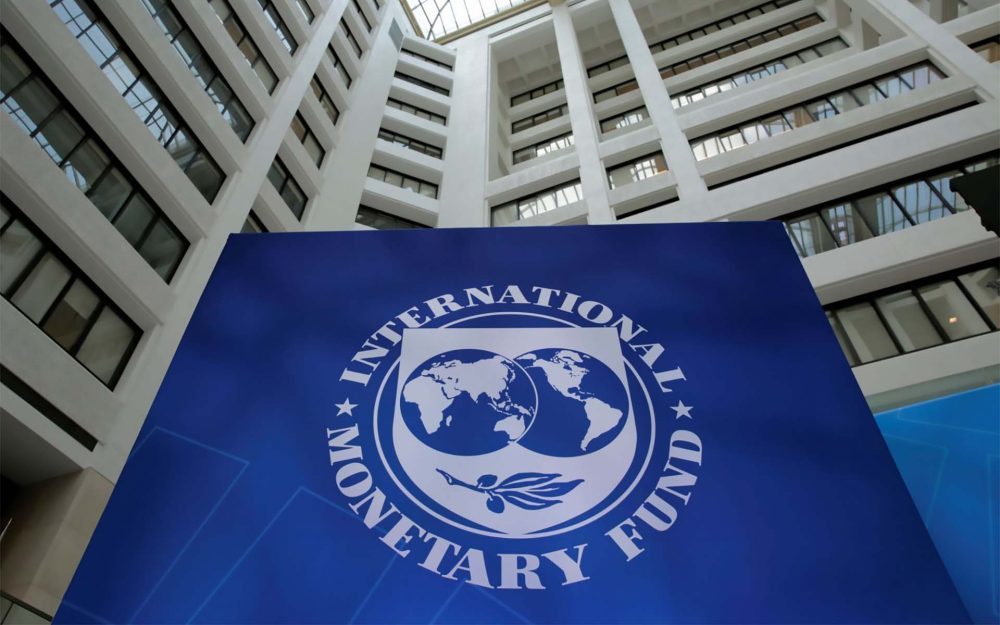Digital Assets
IMF again raises red flag on cryptocurrencies
Published
4 years agoon

While cryptocurrency has the ability to improve the global payment system, digital coins still pose considerable challenges to market conditions worldwide, the International Monetary Fund warned in a new report on Tuesday.
In its latest Global Financial Stability Report, the fund stated that risks stemming from the booming crypto trading and the proliferation of digital coins “appear contained for now,” but they should be monitored closely.
Read Also:
As crypto grows in adoption, the potential impact on the economy and the risks will grow, according to the IMF.
The international body added its voice to a growing chorus on the need for more oversight, underscoring that crypto has inadequate regulations and deficiencies in its operating structure — pointing to exchanges that go down during major selloffs.
“Challenges posed by the crypto ecosystem include operational and financial integrity risks from crypto asset providers, investor protection risks for crypto assets and decetralized finance (DeFi), and inadequate reserves and disclosure for some stablecoins,” the IMF’s report said.
On its list of worries is that increased trading of crypto assets in emerging markets — like El Salvador, which recently began accepting bitcoin as legal tender — could lead to destabilizing capital flows.
Separately, the IMF warns the risk of runs for stablecoins could also trigger a fire sale of commercial paper. Also, as stablecoin and cryptocurrency use grows, the IMF warns that it could harm fiscal policy by enabling tax evasion.
Stablecoins are cryptocurrencies whose values are tied to fiat currencies like the U.S. dollar, precious metals, or short-term securities as a way to mitigate the inherent volatility of cryptocurrencies. They are used by traders to get in and out of trades, settle trades.
Tether (USDT-USD), the world’s largest stablecoin by market capitalization, holds nearly $70 billion worth of commercial paper. The IMF warns if there’s a run on Tether then it could create a run on commercial paper, noting that such a contagion risk could happen for other stablecoins in the future.
The report suggested risks can be further amplified by the use of leverage offered in crypto exchanges, which has been as high as 125 times the initial investment, according to the IMF.
The market capitalization for stablecoins has quadrupled in 2021 to more than $120 billion, while trading volumes outpace other crypto assets, since they’re used for settling spot and derivative trades on exchanges.
Most stablecoins don’t offer transparent disclosure of what’s backing them. While Tether has disclosed the composition of its backed assets, the IMF says those disclosures aren’t audited by independent accountants — and some important information is still missing, including domicile, denomination of currencies, and sector of commercial paper holdings.
U.S. authorities are expected to roll out a regulatory proposal for stablecoins later this month, and mandating transparency of what exactly backs stablecoins is expected to be part of the recommendations.
The IMF also warns that using stablecoins as means of payment and store of value could pose more challenges, by reinforcing economies to align their currencies with the U.S. dollar. The issue is that it could hurt central banks’ ability to make monetary policy, and lead to financial stability risks through currency mismatches on the balance sheets of banks, firms, and households.
Additionally, the IMF cautioned the banking sector could come under pressure if the crypto ecosystem becomes an alternative to bank deposits or even loans.
Stronger competition for bank deposits through stablecoins held on crypto exchanges or private wallets could push local banks toward less stable and more expensive funding sources to maintain similar levels of loan growth, according to the report.
Generally unsound economic policies, combined with inefficient payment systems in some emerging markets and developing economies, is boosting crypto adoption there, the fund stated.
However, the international body isn’t in favor of countries adopting cryptocurrencies as the main national currency, noting that it “carries significant risks and is an inadvisable shortcut.” It’s partly why El Salvador’s experiment with bitcoin (BTC) is being watched closely.
To guard against systemic risks to the global financial system, the IMF said global standards for crypto assets should be adopted—notably for taxes — and that national regulators should coordinate for effective enforcement to prevent regulatory arbitrage.
The IMF also appeared to side with Securities and Exchanges Commission Chair Gary Gensler, noting in the report that if crypto exchanges deal with tokens that meet the definition of securities, then those tokens should be regulated as securities. The exchanges should then be required to meet those disclosures, both domestically and internationally.
For stablecoins, the international body says disclosure requirements for what stablecoins are backed by should be mandated, along with independent audits of those reserves.
“Globally, policymakers should prioritize making cross-border payments faster, cheaper, more transparent and inclusive through the G20 Cross Border Payments Roadmap,” the IMF said.
Share this:
- Click to share on X (Opens in new window) X
- Click to share on Facebook (Opens in new window) Facebook
- Click to share on WhatsApp (Opens in new window) WhatsApp
- Click to share on Pocket (Opens in new window) Pocket
- Click to share on Telegram (Opens in new window) Telegram
- Click to email a link to a friend (Opens in new window) Email
- Click to share on LinkedIn (Opens in new window) LinkedIn
You may like


At 4.4%, Nigeria’s Economy to Outpace Global Growth Average in 2026 – IMF


Nigeria’s Inflation Decline to 15.15% in December 2025 Ignites Questions of Sustainability


Navigating Headwinds: Nigeria’s Economic Outlook for H2 2025 – FSDH report


Nigeria Fully Repays $3.4 Billion IMF COVID‑19 Loan, Bolstering Global Credibility


Financial Times Ranks Sundry Markets among Africa’s 50 Fastest Growing Companies


Egypt Devalues Currency by 35% to Get $8bn Bailout from IMF










